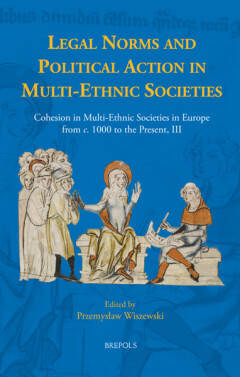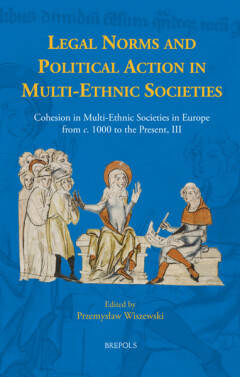
- Afhalen na 1 uur in een winkel met voorraad
- Gratis thuislevering in België vanaf € 30
- Ruim aanbod met 7 miljoen producten
- Afhalen na 1 uur in een winkel met voorraad
- Gratis thuislevering in België vanaf € 30
- Ruim aanbod met 7 miljoen producten
Zoeken
Legal Norms and Political Action in Multi-Ethnic Societies
Cohesion in Multi-Ethnic Societies in Europe from C. 1000 to the Present, III
Przemyslaw Wiszewski
Hardcover | Engels
€ 106,00
+ 212 punten
Omschrijving
The three-volume project Cohesion in Multi-Ethnic Societies in Europe from c.1000 to the Present explores and seeks to find solutions to a crucial problem facing contemporary Europe: in what circumstances can different ethnic groups co-operate for the common good? They apparently did so in the past, combining to form political societies, medieval and early modern duchies, kingdoms, and empires. But did they maintain their ethnic traditions in this process? Did they pass on elements of their cultural memory when they were not in a dominant position in a given polity? The first volume in the project explored ethnic cohesion as evidenced by narratives about the past, while volume two analysed communal events and activities. This third volume focuses on how relations between ethnic groups were influenced by political activities and related legal norms. Both cooperation and conflict between ethnic communities find their expression in political activities, although they usually have a significant cultural and economic background as well. This book examines the causes of political cooperation between ethnic groups, despite the risk of conflict, and the methods of stabilizing this cooperation through the enactment of law.
Specificaties
Betrokkenen
- Auteur(s):
- Uitgeverij:
Inhoud
- Aantal bladzijden:
- 336
- Taal:
- Engels
Eigenschappen
- Productcode (EAN):
- 9782503602301
- Verschijningsdatum:
- 23/06/2023
- Uitvoering:
- Hardcover
- Formaat:
- Genaaid
- Gewicht:
- 426 g

Alleen bij Standaard Boekhandel
+ 212 punten op je klantenkaart van Standaard Boekhandel
Beoordelingen
We publiceren alleen reviews die voldoen aan de voorwaarden voor reviews. Bekijk onze voorwaarden voor reviews.








